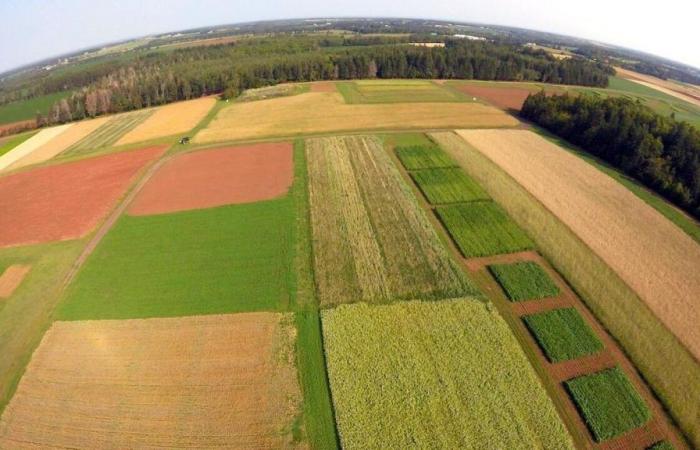In Prince Edward Island, farmers are having more and more difficulty acquiring new land, say agricultural associations. The Lands Protection Act is partly to blame for this problem.
A Statistics Canada report released at the end of May reveals that the price of agricultural land in Prince Edward Island increased by 83% from 2018 to 2023.
The value was $6,432 per acre in 2023, 30% higher than the national average and the fastest rising in the country.
It is difficult to invest and grow, especially for young farmers
says the Prince Edward Island district youth director for the National Farmers Union, Travis Cummiskey.
The rise in the price of agricultural land has also increased the price of its rental, he adds. Those that rented before $50 an acre can now cost $100 or more, he says.
We are excluding the next generation of island farmers from the market
estimates the president of the Agricultural Federation of Prince Edward Island, Donald Killorn.
A good that is becoming rare
The increase in the price of agricultural land is influenced by several factors, many of which the province cannot influence, because they are national or international.
Agricultural land is an increasingly rare commodity. Institutions, governments and wealthy individuals see it as a very solid investment
underlines Donald Killorn
Open in full screen mode
Donald Killorn
Photo: (Shane Hennessey/CBC)
Although higher than the national average, farmland in Prince Edward Island is still a bargain compared to that in Ontario, where the average price is around $20,0000 per acre.
So, believe Travis Cummiskeyseveral wealthier individuals coming from elsewhere take advantage of $ per acre”,”text”:”the bargain at $6,500 per acre”}}”>the bargain at $6,500 per acre
and buy lots in Prince Edward Island, which drives up prices.
According to Travis Cummiskeythe province must better apply its land protection law (Lands Protection Act). This law limits the amount of land that a person or company can control in the province.
Currently, some large landowners are circumventing the law by using several companies to obtain more land than the province allows, says Travis Cummiskey.
As a province, we must adopt measures to guarantee access [aux terres agricoles] to the next generation so that our agricultural industry continues to belong to the island.
In July 2021, the Regulatory and Appeals Commission looked into the application of the land ownership law on the island.
Some recommendations from his report Land Matters aimed at better protecting land were indeed revised and the commission received expanded authority to investigate audits and see if the regulations surrounding land ownership were respected.
However, the results of this work remain unclear to date and no follow-up has been made public.
A bureaucratic purgatory
Another recommendation from the report Land Matters indicated the need for zoning to preserve agricultural land, so that it would not be transformed into real estate zones for sale.
This preventive measure is explained as follows: a rural owner can make six times more money by selling his agricultural land to a real estate developer rather than to a farmer.
Furthermore, continues Travis Cummiskey, protection should be put in place to regulate land used by new buyers.
In rural areas, everyone seems to believe that having a one-acre residential lot is essential. This is becoming more and more problematic because every time someone builds a house, we lose an acre of (agricultural) land.
he explains.
Open in full screen mode
Travis Cummiskey points out that young farmers in particular often have the motivation to want to cultivate more land.
Photo: Courtesy: Travis Cummiskey
In response to the report’s recommendations Land Matters, the province emphasizes that a report must be published in the coming weeks. It must propose a land use plan on a provincial scale.
But, according to Donald Killornthe province is too slow in its approach to implementing the recommendations.
The province’s land use plan is bureaucratic purgatory
he complains. The studies continue, but the real consultation work to put the plan into action has not yet taken place.
The province plans to begin consultations next fall or winter.
According to the report of Kevin Yarr, CBC







